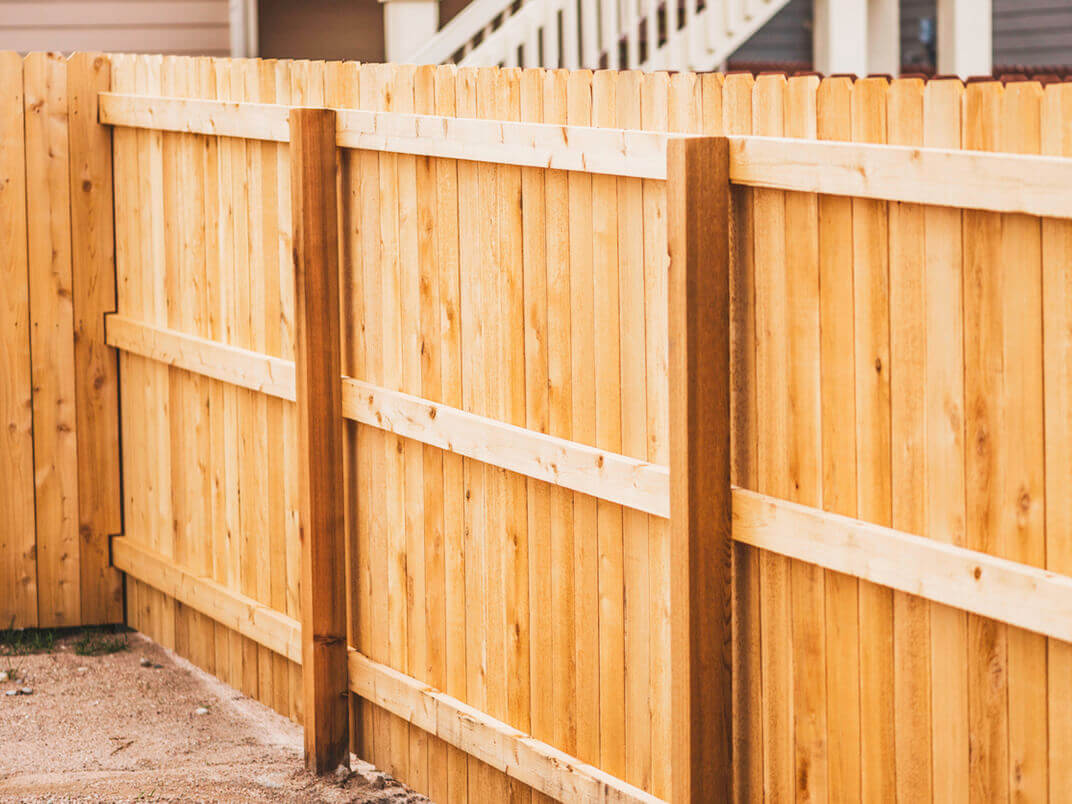All Categories
Featured
It's important to comprehend the permit needs particular to your location when you determine to mount a fencing around your domestic building. While setting up a fence can look like an easy home renovation job, local legislations and laws have to be followed to guarantee the installation is lawful and certified. Falling short to protect the correct authorizations could lead to fines or perhaps require you to get rid of the fence. Right here's a detailed consider the authorizations you might require for fence installation.
Why Do You Required a License for Fence Setup? A fencing is more than simply an obstacle in between buildings-- it can affect safety and security, residential or commercial property value, looks, and even environmental problems. Regional federal governments need licenses to guarantee that fences meet particular requirements and do not trigger problems for utilities, neighbors, or the neighborhood as a whole. Licenses additionally ensure that the installation abides by zoning regulations, developing codes, and safety and security laws.
![]()
Kinds Of Authorizations You Might Need. Building Authorization. A structure permit is just one of one of the most usual permits required for fence installment. This authorization ensures that the fencing satisfies regional structure codes. As an example, if you're building a fence over a certain height (commonly over 6 feet), you'll likely require a building authorization. The neighborhood structure division will commonly assess the website and testimonial plans to make sure the structure is stable and does not obstruct public areas or produce hazards.
Zoning Permit. Zoning laws govern just how land is made use of in a certain location, and they consist of regulations regarding fences. A zoning permit ensures your fencing abides with obstacle, elevation, and location regulations. For instance, fences might require to be held up a particular distance from walkways, roadways, or home lines to stop blockage or disturbance with utilities. In many cases, zoning laws can additionally define which materials are enabled.
HOA Approval. You might need to seek approval before setting up a fence if your property is component of a property owners organization (HOA) HOAs typically have guidelines that control the appearances and framework of fencings to guarantee they are in consistency with the area. You might need to submit your plans for authorization, and the HOA might restrict fence design, height, or material.
Specialized Permits. In some locations, there may be additional authorizations required for details situations. As an example, if your fence is near a secured ecological area or situated in a flood area, you may require to obtain specialty licenses connected to ecological impact. If the fencing is in a location with below ground energies, you might require to get clearance to prevent destructive pipes or cables.
![]()
Easement or Energy Company Permission. Prior to installing a fencing, it's essential to examine whether the property includes an easement, such as an utility easement, which could affect where you can put your fencing. Easements are locations of land marked for public or exclusive energies, and you may require authorization from the utility company or various other authority to construct within this area.
Just How to Figure Out What Allows You Required. To guarantee that you're adhering to all the essential laws, here's how you can identify the specific authorizations required for your fence installation:
![]()
See Your Regional Federal Government Office: The very first step is to inspect with your regional building or zoning division. Many cities and counties have standards offered online that specify what sorts of authorizations are required for fence installment. Otherwise, calling or going to the workplace face to face can assist clarify the process. Examine Your City's Site: Several communities offer information about fencing installations and the permits called for via their main web sites. Some sites also enable you to submit applications online. Seek Advice From a Fencing Setup Expert: If you're uncertain concerning local guidelines, an expert fencing professional can assist. They are familiar with the allowing procedure and can lead you with the actions. The Consequences of Not Getting a Permit. Failing to safeguard the essential permits before mounting a fence can result in substantial effects. You may be fined or required to eliminate the fence completely.
Conclusion. Installing a fencing around your property can include both security and visual allure, but it is very important to guarantee you're complying with the legal action in the process. Looking into the specific license needs for your area, consisting of building licenses, zoning laws, HOA authorization, and energy permissions, will assist guarantee your fence installment goes smoothly. Putting in the time to recognize these needs now can conserve you from pricey blunders and possible lawful problems down the line.
Why Do You Required a License for Fence Setup? A fencing is more than simply an obstacle in between buildings-- it can affect safety and security, residential or commercial property value, looks, and even environmental problems. Regional federal governments need licenses to guarantee that fences meet particular requirements and do not trigger problems for utilities, neighbors, or the neighborhood as a whole. Licenses additionally ensure that the installation abides by zoning regulations, developing codes, and safety and security laws.

Kinds Of Authorizations You Might Need. Building Authorization. A structure permit is just one of one of the most usual permits required for fence installment. This authorization ensures that the fencing satisfies regional structure codes. As an example, if you're building a fence over a certain height (commonly over 6 feet), you'll likely require a building authorization. The neighborhood structure division will commonly assess the website and testimonial plans to make sure the structure is stable and does not obstruct public areas or produce hazards.
Zoning Permit. Zoning laws govern just how land is made use of in a certain location, and they consist of regulations regarding fences. A zoning permit ensures your fencing abides with obstacle, elevation, and location regulations. For instance, fences might require to be held up a particular distance from walkways, roadways, or home lines to stop blockage or disturbance with utilities. In many cases, zoning laws can additionally define which materials are enabled.
HOA Approval. You might need to seek approval before setting up a fence if your property is component of a property owners organization (HOA) HOAs typically have guidelines that control the appearances and framework of fencings to guarantee they are in consistency with the area. You might need to submit your plans for authorization, and the HOA might restrict fence design, height, or material.
Specialized Permits. In some locations, there may be additional authorizations required for details situations. As an example, if your fence is near a secured ecological area or situated in a flood area, you may require to obtain specialty licenses connected to ecological impact. If the fencing is in a location with below ground energies, you might require to get clearance to prevent destructive pipes or cables.

Easement or Energy Company Permission. Prior to installing a fencing, it's essential to examine whether the property includes an easement, such as an utility easement, which could affect where you can put your fencing. Easements are locations of land marked for public or exclusive energies, and you may require authorization from the utility company or various other authority to construct within this area.
Just How to Figure Out What Allows You Required. To guarantee that you're adhering to all the essential laws, here's how you can identify the specific authorizations required for your fence installation:

See Your Regional Federal Government Office: The very first step is to inspect with your regional building or zoning division. Many cities and counties have standards offered online that specify what sorts of authorizations are required for fence installment. Otherwise, calling or going to the workplace face to face can assist clarify the process. Examine Your City's Site: Several communities offer information about fencing installations and the permits called for via their main web sites. Some sites also enable you to submit applications online. Seek Advice From a Fencing Setup Expert: If you're uncertain concerning local guidelines, an expert fencing professional can assist. They are familiar with the allowing procedure and can lead you with the actions. The Consequences of Not Getting a Permit. Failing to safeguard the essential permits before mounting a fence can result in substantial effects. You may be fined or required to eliminate the fence completely.
Conclusion. Installing a fencing around your property can include both security and visual allure, but it is very important to guarantee you're complying with the legal action in the process. Looking into the specific license needs for your area, consisting of building licenses, zoning laws, HOA authorization, and energy permissions, will assist guarantee your fence installment goes smoothly. Putting in the time to recognize these needs now can conserve you from pricey blunders and possible lawful problems down the line.
Latest Posts
Check Out Exceptional Vehicle Maintenance Services at Montclare Auto Repair – Quality Service Today
Published May 28, 25
1 min read
Specialist Residential Roofing Solutions You Can Trust
Published May 22, 25
1 min read
Shield and Beautify Your Home with Weathercraft's Exterior siding Providers
Published May 21, 25
1 min read
More
Latest Posts
Check Out Exceptional Vehicle Maintenance Services at Montclare Auto Repair – Quality Service Today
Published May 28, 25
1 min read
Specialist Residential Roofing Solutions You Can Trust
Published May 22, 25
1 min read
Shield and Beautify Your Home with Weathercraft's Exterior siding Providers
Published May 21, 25
1 min read